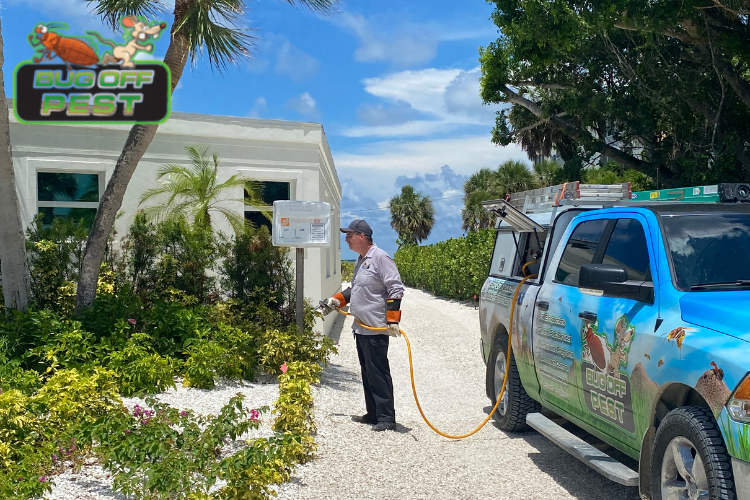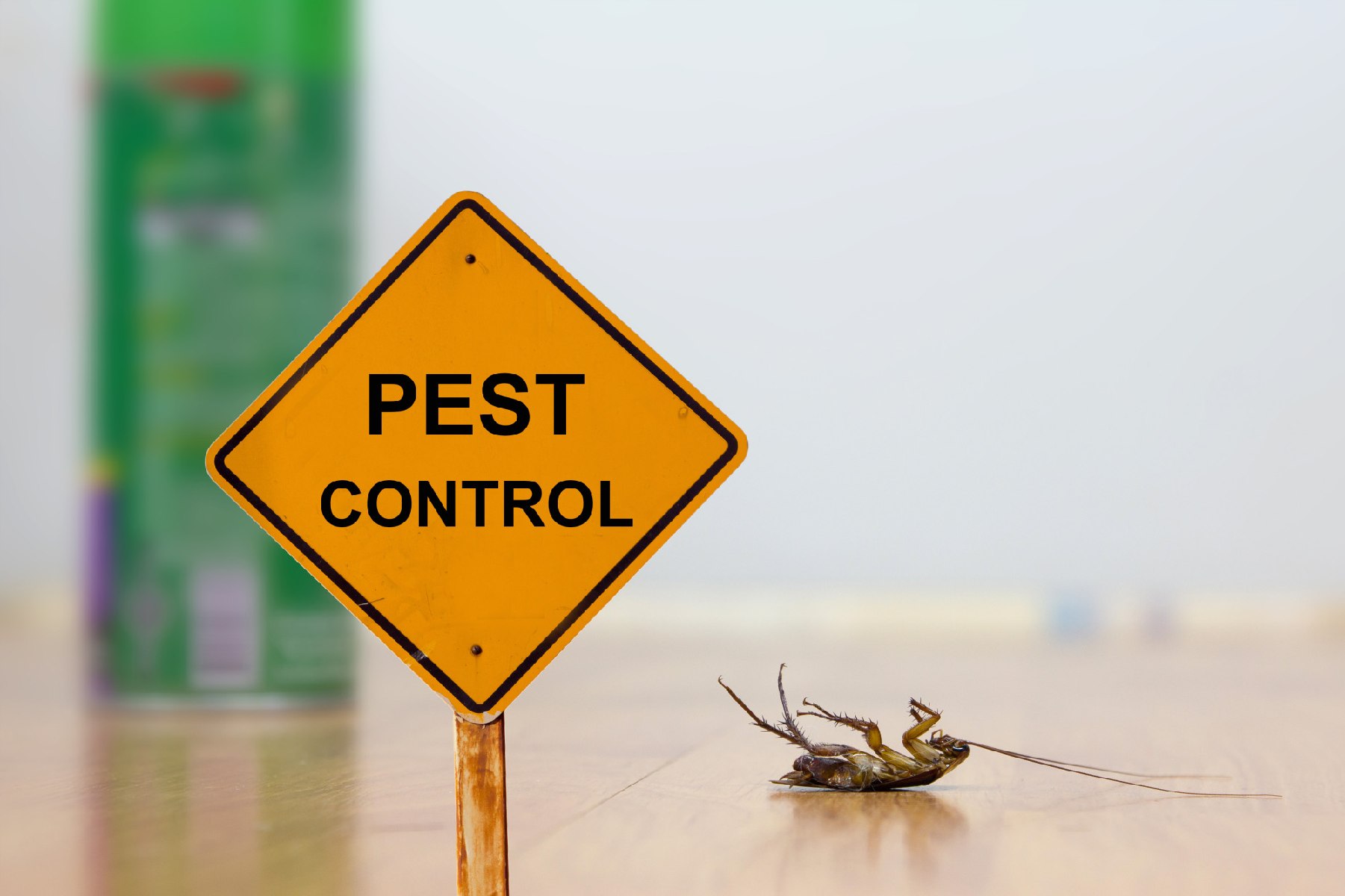Affordable Pest Control in Port Charlotte for year-round protection.
Affordable Pest Control in Port Charlotte for year-round protection.
Blog Article
Discovering Ingenious Methods and Products for Reliable Bug Control
The landscape of bug control is advancing, noted by the appearance of innovative techniques and items created to improve performance and sustainability. From smart catches equipped with sophisticated monitoring systems to organic approaches that utilize all-natural predators, these developments offer a paradigm change in exactly how we come close to pest monitoring.
Smart Traps and Checking Systems
Just how can contemporary innovation boost bug monitoring? One significant development is the development of wise catches and checking systems, which give real-time data and analytics for efficient parasite control. These systems make use of sensors and wireless technology to spot insect task, alerting home supervisors and pest control specialists to problems before they rise.
Smart traps are geared up with features such as bait terminals that attract insects and record them efficiently. These catches can be kept track of remotely, permitting prompt interventions and reducing the need for comprehensive chemical applications. The assimilation of machine understanding formulas allows these systems to distinguish between target pests and non-target species, boosting the accuracy of insect control steps.
In addition, the information accumulated from wise traps can be analyzed to identify patterns in insect behavior and ecological factors adding to invasions (Pest Control in Port Charlotte). This information is indispensable for establishing targeted parasite administration techniques tailored to details atmospheres. By embracing wise traps and checking systems, insect control specialists can enhance their functional efficiency and decrease the eco-friendly effect of pest monitoring, eventually causing much safer and a lot more sustainable practices in the market
Biological Bug Control Methods
Using natural predators and bloodsuckers, organic parasite control methods provide an eco pleasant choice to chemical treatments. This approach entails the introduction or enhancement of details organisms that can naturally manage insect populaces, thereby decreasing reliance on synthetic chemicals. Typical instances include the usage of ladybugs to manage aphid invasions and parasitical wasps to target caterpillars.

Biological control can be classified into three primary methods: classical, augmentative, and preservation. Timeless biological control includes importing all-natural opponents from the bug's indigenous habitat, while augmentative control includes enhancing the population of existing all-natural enemies through launches. Conservation strategies focus on producing conditions that support these advantageous microorganisms in the environment.
It often calls for a detailed evaluation of insect dynamics and the life cycles of both the insects and their natural adversaries. As awareness of ecological concerns grows, biological bug control techniques are increasingly identified for their sustainable function in integrated bug monitoring programs.
Eco-Friendly Chemical Alternatives
Eco-friendly chemical options give a sensible remedy for bug administration that decreases ecological influence while efficiently controlling parasite populations. These alternatives are obtained from natural resources and are meticulously formulated to target particular parasites without hurting beneficial microorganisms, making them an essential element of lasting bug control methods.
Among the most efficient eco-friendly alternatives are plant-based insecticides, such as neem oil and pyrethrin, which are originated from the seeds and flowers of numerous plants. These substances interrupt the life process of parasites, decreasing their populations without the hazardous effects connected with standard pesticides - Pest Control in Port Charlotte. Additionally, crucial oils like peppermint and clove oil exhibit repellent buildings, better enhancing their utility in pest monitoring

Furthermore, environmentally friendly chemical alternatives typically break down a lot more swiftly in the setting, lowering the threat of soil and water more contamination. This characteristic aligns with the boosting consumer demand for sustainable techniques in agriculture and city pest control. As study remains to advance, the growth of innovative environment-friendly solutions will better boost effectiveness and widen application locations, making it possible for pest management specialists to embrace greener, a lot more accountable techniques in their techniques while securing human health and wellness and the setting.
Pheromone Interruption Methods
Another innovative technique in lasting parasite management is using pheromone disruption strategies. These link techniques make use of the all-natural chemical signals, or pheromones, that insects use for communication, particularly in mating behaviors. By disrupting these signals, insect populations can be successfully managed without considering dangerous chemicals.
Pheromone traps are frequently employed in this technique. Over time, this can lead to a significant decline in bug populaces.

Integrated Insect Management Methods
Effective pest control commonly needs a detailed technique, and Integrated Bug Management (IPM) approaches supply a framework for achieving this goal. IPM incorporates various monitoring practices to minimize pest populations while minimizing dependence on chemical pesticides. This diverse strategy begins with complete surveillance and recognition of pests, enabling targeted treatments based upon particular insect stress.
Cultural techniques, such as crop rotation and sanitation, play an important role in preventing bug establishment. Organic controls, including all-natural predators and parasitoids, are used to preserve parasite populaces at workable degrees. When necessary, selective chemical treatments are used, stressing lower poisoning to non-target species and the environment.
By see this using this all natural method, IPM not just boosts pest control effectiveness but likewise adds to lasting environmental equilibrium. Eventually, Integrated Parasite Monitoring represents a forward-thinking remedy that lines up farming performance with ecological stewardship, making it important in contemporary pest control techniques.

Final Thought
In final thought, the assimilation of cutting-edge techniques and items for reliable insect control stands for a substantial development in sustainable pest monitoring. Smart catches and checking systems, biological bug control approaches, environment-friendly chemical choices, and scent disruption strategies collectively improve the performance of parasite monitoring strategies. By taking on these techniques, the dependence on standard pesticides can be decreased, promoting environmental wellness while making sure effective parasite control. Proceeded r & d in these areas will even more enhance parasite management practices.
Report this page